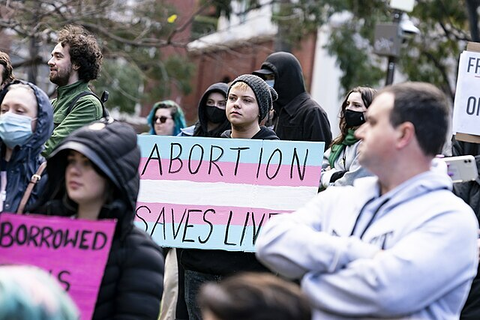As the academic year goes on, student organizations are getting ready for a new round of activities, events and fundraising. These groups, which are essential to campus life, depend on fundraising to keep going. A recent shift in policy by Student Involvement may dampen their enthusiasm and affect their finances.
The new food policy says student organizations are only able to host food fundraisers with the following types of food: pre-packaged and prepared food. On top of that, food will only be able to be sold during two-hour increments.
“So we (Student Involvement) had talked over the summer about what that process should look like, and we came up with prepackaged food, and we did announce that at our student organization conference,” said Alex Pitner, director of Student Organizations.
The change in the food policy was to ensure that there is some kind of regulation around ensuring the food is safe.
While well-intentioned, the policy may affect student organizations unexpectedly. Food safety is important, but this policy will hinder student organizations’ creativity, finances and participation.
One of the biggest problems with the food policy is that it limits the kinds of food that student groups can sell at events. Students can’t sell homemade or fried items because the policy only allows students to sell pre-packaged and prepared foods.
“It’s just hard to come up with ideas that are beneficial for our orgs while following these new guidelines,” said Alondra Duenas, a junior communications major who serves as the fundraiser chair in the Kappa Delta Chi sorority.
Student organizations were used to offering a variety of appetizing snacks to attract students with diverse tastes. Now they have a one-size-fits-all approach that doesn’t embody the college’s vibrant, diverse spirit.
“I feel like the student voices weren’t really heard, and if they were heard, they weren’t from people that are in MGC (Multicultural Greek Council) or people of color,” Duenas said.
Food fundraisers are a common way for student groups to raise money to pay for workshops, community service projects and other fun events for students.
The food policy’s two-hour sales cap is meant to make food safer by minimizing cross contamination, keeping food fresh and at the correct temperature.
“The two-hour limit is just to make sure that it’s not out sitting out in the open for an extended period of time,” Pitner said.
Safety is important, but this restriction means that organizations might not be able to make as much money as they could during longer sales, which puts a strain on their limited finances.
College is a time to explore, learn and be creative. Student groups are a big part of making these things happen.
The food policy’s one-size-fits-all approach hinders these organizations’ creativity. Instead of pushing them to try new foods, it forces them into a set pattern, making it harder for them to share unique experiences with their peers.
“I think there’s definitely gonna be a decrease in participation … if I see someone selling just cookies that I could just buy at Walmart for cheaper, I’m just gonna do that,” Duenas said.
Finally, the food policy may prevent student organizations from even having food fundraisers. The policy’s inflexibility may demotivate participation. If these groups struggle to raise funds for their activities, campus involvement and student interaction may decrease.
“I have a student organization advisory board that I do a ‘call out’ for, and people can sign up and that’s actually where a lot of the on-campus events policy information that we got from last year, we asked our students about,” Pitner said. “So we do highly encourage students to participate in that once they see that ‘call out’ go out and really provide some opportunities to talk.”
Students should consider joining the Student Organization Advisory Board. Students can give feedback on process improvements, future events, and what student leaders want to see to improve on this board. Registration calls normally start in October. Student feedback helps ensure that policies meet student organizations’ needs and improves campus life.















